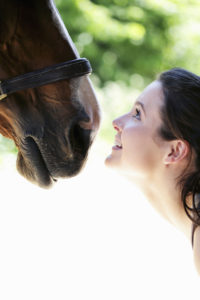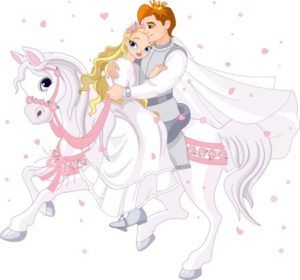‘Tis the season  of Cupid and love and who doesn’t love their horse? In fact some of you have told me that you love your horse more than your significant other but don’t worry, I won’t tell. While I have no qualms with you loving your horse more than your significant other, some of you are loving your horses so much that you may be loving them to death. Literally.
of Cupid and love and who doesn’t love their horse? In fact some of you have told me that you love your horse more than your significant other but don’t worry, I won’t tell. While I have no qualms with you loving your horse more than your significant other, some of you are loving your horses so much that you may be loving them to death. Literally.
Here is a direct quote from a Facebook post from someone who I know is not alone in their affliction “I wish I could give up my crazy need to give grain 2 times a day also, but food is love for me.” This statement suggests to me that this owner knows that her horse doesn’t need the grain but she gives it anyway because it makes her feel good. At the start of a consult I am commonly given a list of things that a client feeds their horse which often includes several forms of treat or a random pound of some feed or another. Often it is clear the person is embarrassed as they give me their laundry list. When I ask the purpose the reply is commonly along the lines of “well I just like to give him a treat”, or “I feel bad if I put him away without giving him something.” Notice that that these responses are about the owner, not the horse.
That sideways look they give us, those pricked ears and bright eyes are enough to instill guilt in anyone. I get it! But the problem is that when you give a treat or some feed out of guilt it likely isn’t a need. A few years ago when I became a parent I read an article about how to know if you are spoiling your child. The author offered a very simple check. If you are purchasing your child a gift from a place of love then you are not spoiling them with that gift. However if you purchase the gift from a place of guilt then you may be spoiling them. I have used this multiple times over the years as I’ve reached for an item on the store shelf and I always check-in and ask myself where the urge to purchase comes from. It is interesting when it is motivated out of love and when it comes from guilt.
Does it really hurt your horse though if you feed him that treat because you feel guilty that he has to spend his days in a stall instead of a pasture or whatever your guilty reason is? That depends. You may end up with a horse or pony that develops a nasty habit of nipping or mugging you for treats which becomes a safety issue but beyond that when we are driven to treat our horses from a place of guilt it is hard to stand back and be objective about their needs.
Just like us, every calorie consumed if it is not needed will be stored for later as fat and when you are unable to stand back and objectively assess your horse you may one day look up and realize that he has gained a whole lot more weight than you realized. This is where the real issue of showing your love to your horse through food can become a life of death situation. We used to think that body fat was a benign if not rather unsightly thing and yet now we know that it is so much more than that. Body fat is actually a metabolically active organ that can cause inflammation in the body. The inflammatory cytokines that are released by fat tissue interfere with glucose uptake promoting insulin resistance. Horses with insulin resistance are at greater risk of developing laminitis which can be a death sentence. 
We as a horse owning population have become accustomed to over-weight horses being the norm, so much so that people condemn owners of fit performance horses as being under fed and abused. Yet being overweight is far more likely to be a death sentence than being athletically lean and fit. We need to readjust what we see as being an ideal weight and see it for what it often is, overweight and at risk of metabolic disorders.
So this Valentine’s day, if you love your horse (and I now you do), step back and take an objective look at body condition. Pick up a copy of the Hennecke condition scoring chart and put your hand on your horse and assess condition. Then the next time he looks at you with those doughy eyes or you go to put him away after a ride and you reach for that treat or random pound of senior feed, ask yourself how much you love him and whether you might just be killing him with kindness. If the answer is yes leave out the feed and give him a good scratch in his favorite tickle spot and a pat and walk away. Sometimes tough love is the best kind of love you can give.
Happy Valentines day!

Are you loving your horse to death? by Dr. Clair Thunes PhD is licensed under a Creative Commons Attribution-NoDerivatives 4.0 International License.
Based on a work at http://summit-equine.com/are-you-loving-your-horse-to-death.